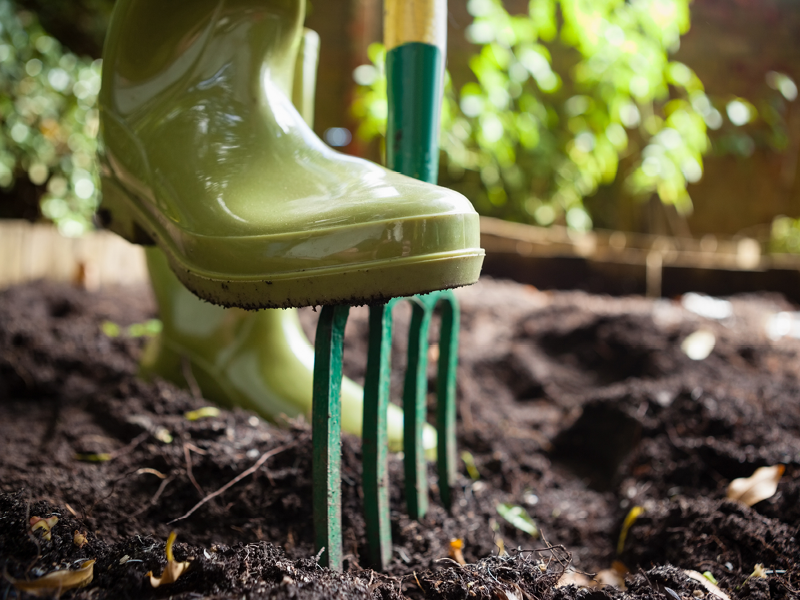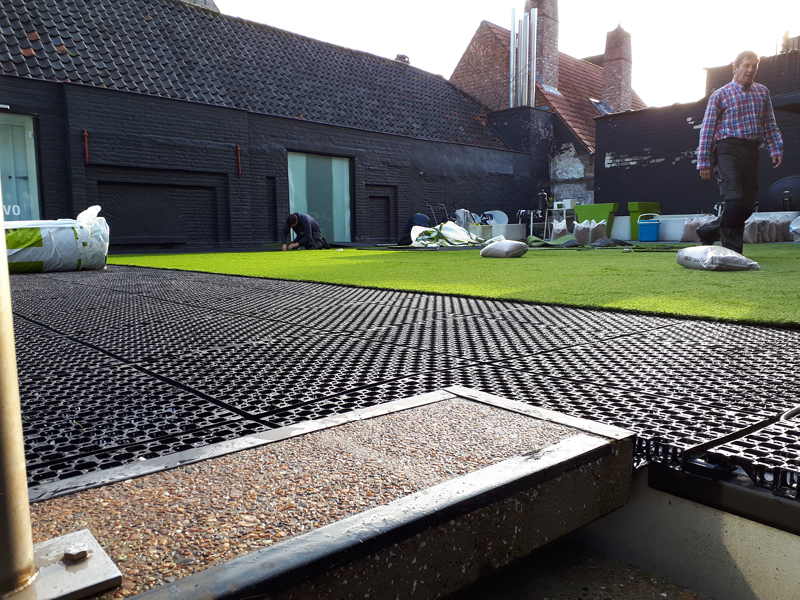Are all gardens really ‘green’?
Building upon our previous blog, ‘’What is a sustainable garden’’, we will be delving deeper into the specifics of what makes a garden ‘green’. Unfortunately, many gardeners are unaware that their gardening techniques could be causing more harm to the environment than good. So we must explore some common misunderstandings that may hinder gardeners from creating their sustainable dreams.
While most gardeners will have the best of intentions when it comes to the upkeep of their garden, being aware of different gardening methods and their impact on climate change can make a world of difference in securing a long-term, sustainable future for your ‘green’ garden
We will walk through what makes a garden truly ‘green’ by examining poor gardening techniques and how you can resolve them to help significantly improve your gardening setup.
Reliance on machines
Although gardeners may think that just having and maintaining a garden makes them pioneers in being ‘green,’ this is simply not the case. A simple example of this is the use of petrol lawnmowers; these can be detrimental to the environment causing massive amounts of pollution. Estimates show that emissions just from gas lawn mowers alone lead to between 16 and 41 billion pounds of CO2 every year, just from petrol lawnmowers! Although slightly less detrimental, electric lawnmowers can be significantly more expensive, which might not be feasible for all gardeners. So how do you combat this predicament? Well, the solution is simple! Pick up those garden sheers and really get your back into them, or even invest in a scythe for a bit of old-fashioned grass cutting! Research shows that those engaged in manual gardening burned more calories than using a powered tool such as a lawnmower. Plus, there’s no better feeling than knowing that you put all that work and graft in rather than giving all the credit to some gas-guzzling machine!

Aesthetics over practicality
All too often, gardeners set out with the ambition of having the most beautiful garden in their local community; while this is a noble pursuit and a staple of British society, many sacrifice practicality in the pursuit of aesthetics which can be detrimental for the long-term health of their garden. Even just implementing a few minor changes can make a world of difference; for example, the use of chemicals to destroy weeds can be extremely harmful and therefore should be used very sparingly or preferably not at all. Manual methods of weed eradication will be the preferred method as it is safer for the environment. Also, realising and coming to terms with the fact that weed removal will be an ongoing task and repeated control measures will have to be implemented will ease those looking for a quick and harmful solution to weed removal. Luckily for you, here at ECCO Products, we specialise in merging aesthetics with practicality, ensuring the best of both worlds for our customers.

Current gardening setups aiding flash flooding
Flash flooding has become a major concern for British gardeners, with rainfall increasing exponentially over the last few years in the United Kingdom. Too many gardens are not designed to allow for the permeable flow of water with the increase in hard surfaces such as concrete, tiles, and paving blocks. Thankfully, products such as a Drainbase will ensure your garden increases its permeability due to its innovative, water buffering tile system ensuring perfectly water-permeable paving alongside artificial turf. Other products such as ECCOGravel are highly permeable and ensure your garden paths, driveways, and terraces have that extra protection against tougher climates. ECCOdal, for example, was designed specifically with flash flooding in mind, ensuring rainwater permeates into the ground, which prevents both the shortage of groundwater and flooding. Imagine all these benefits without having to invest in a costly drainage system!

Preventing wildlife from flourishing
Insects are crucial for the ecosystem to pollinate and disperse seeds across the local environment. A new study suggests that 40% of insect species are in decline; this could have major ramifications for plant life across the globe unless effective action is taken. With most of the British population having access to a shared or private garden, it is of the utmost importance that habitats are left in peace and allowed to flourish. Growing native flowers will be beneficial for the local ecosystem and should be a major priority for gardeners. Our very own ECCOsedum green roofs were designed to act as a home for wildlife, improving the overall ecosystem, especially as insects and habitats are deteriorating at a rapid rate. Too often plants are introduced that are not native to the local environment, this could be dangerous to the local wildlife, and overall ecosystem. Some species of non-native plants possess the ability to change their ecosystem by altering the chemical makeup of the soil and even out-competing native plants and spreading wildly. Consequently, introducing non-native species of plants is illegal, so it is pertinent that gardeners are aware of these dangers to help safeguard the future of their garden and the local community’s ecosystem.
Are you interested in improving your gardening setup? Contact our experts today for more information and take the next step in your ‘green’ journey!

